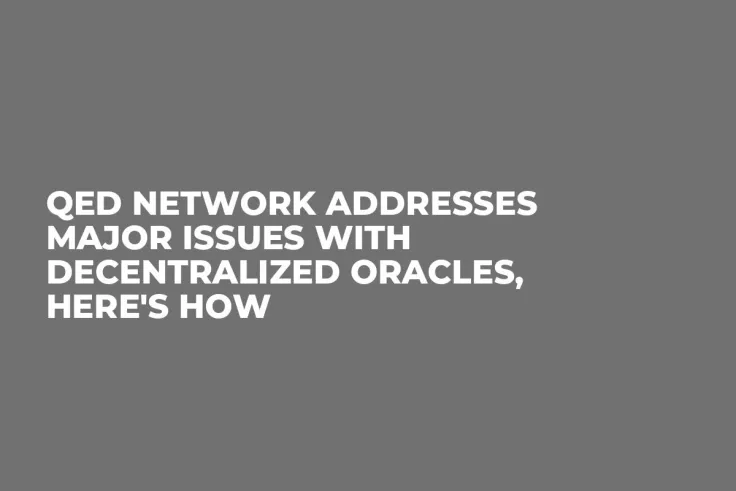
Disclaimer: The opinions expressed by our writers are their own and do not represent the views of U.Today. The financial and market information provided on U.Today is intended for informational purposes only. U.Today is not liable for any financial losses incurred while trading cryptocurrencies. Conduct your own research by contacting financial experts before making any investment decisions. We believe that all content is accurate as of the date of publication, but certain offers mentioned may no longer be available.
During the decentralized finance euphoria of 2020-2021, a number of incidents with DeFi protocols (flash-loan attacks, manipulations, "rug pulls") demonstrated the lethal importance of secure and accurate price broadcasting. That is where new-gen decentralized cross-network oracles platform QED comes in.
QED oracles network implements new method of price broadcasting for DeFis and DAO: details
Decentralized oracles (data transfer and broadcasting mechanism based on smart contracts) are backbone elements of modern DeFis. At their core, they are integrated to ensure accurate pricing of assets in automated market making (AMM) engines and liquidity pools. For instance, they will prevent users from buying USDT at $1.1 in equivalent even in the event of severe market volatility.
Fun fact - The base software for QED, namely the DelphiOracle, is the most widely used Oracle on @WAX_io with 1400+ actions every hour! pic.twitter.com/fGv9A7Eqpd
— QED (@QED_Network) September 10, 2021
Besides that, decentralized oracles play an increasingly important role in prediction markets as well as in multiple "real-world" use cases for distributed ledgers in governance, insurance, supply chain, betting, gambling and so on. Decentralized oracles are set to ensure protection from manipulations and attacks.
That is why problems with oracles can result in massive losses for both teams and users of DeFi protocols, members of DAOs, traders, clients of verification tools and so on. To provide context, when Compound Protocol's infrastructure collapsed due to a pricing bug, the malefactors siphoned off $70 million of liquidity.
Compound that with utilized third-party centralized infrastructure by Coinbase PRO, and that is why its pricing module failed. The same problems caused huge losses for bZx DeFi protocol, Value DeFi and other mainstream yield farming protocols. The net volume of losses due to wrong price quotations totals $30 billion for 2020-2021 only.
QED, a next-generation network of blockchain oracles, is designed to offset the gap between reliable data indexing and DeFi tooling. It leverages multiple data sources for pricing protocols, which eliminates the possibility of manipulations, attacks and interference from the protocol's team.
No longer will DeFi users have to worry about front-running or malicious arbitrage
QED implemented a failure-resistant post-execution process to protect its data streams from errors, delays and so on. QED's team implemented a program of compensations for DeFi enthusiasts who lost money due to delays and errors in oracles infrastructure.
QED's instruments are 100% protected from all known malicious practices such as arbitrage, front-running and manipulations on low-liquid markets. Its entire set of operations are executed on-chain: no centralized server or wallet participates in price broadcasting procedures.
QED network leverages WAX, a mainstream smart contracts platform, for its performance. WAX is much faster and more resource-efficient than Ethereum and Solana.
Representatives of QED are certain that other blockchain oracle providers will follow the manner QED operates with fully for on-chain contracts execution to advance the level of security and predictability in DeFi.

 Tomiwabold Olajide
Tomiwabold Olajide Caroline Amosun
Caroline Amosun